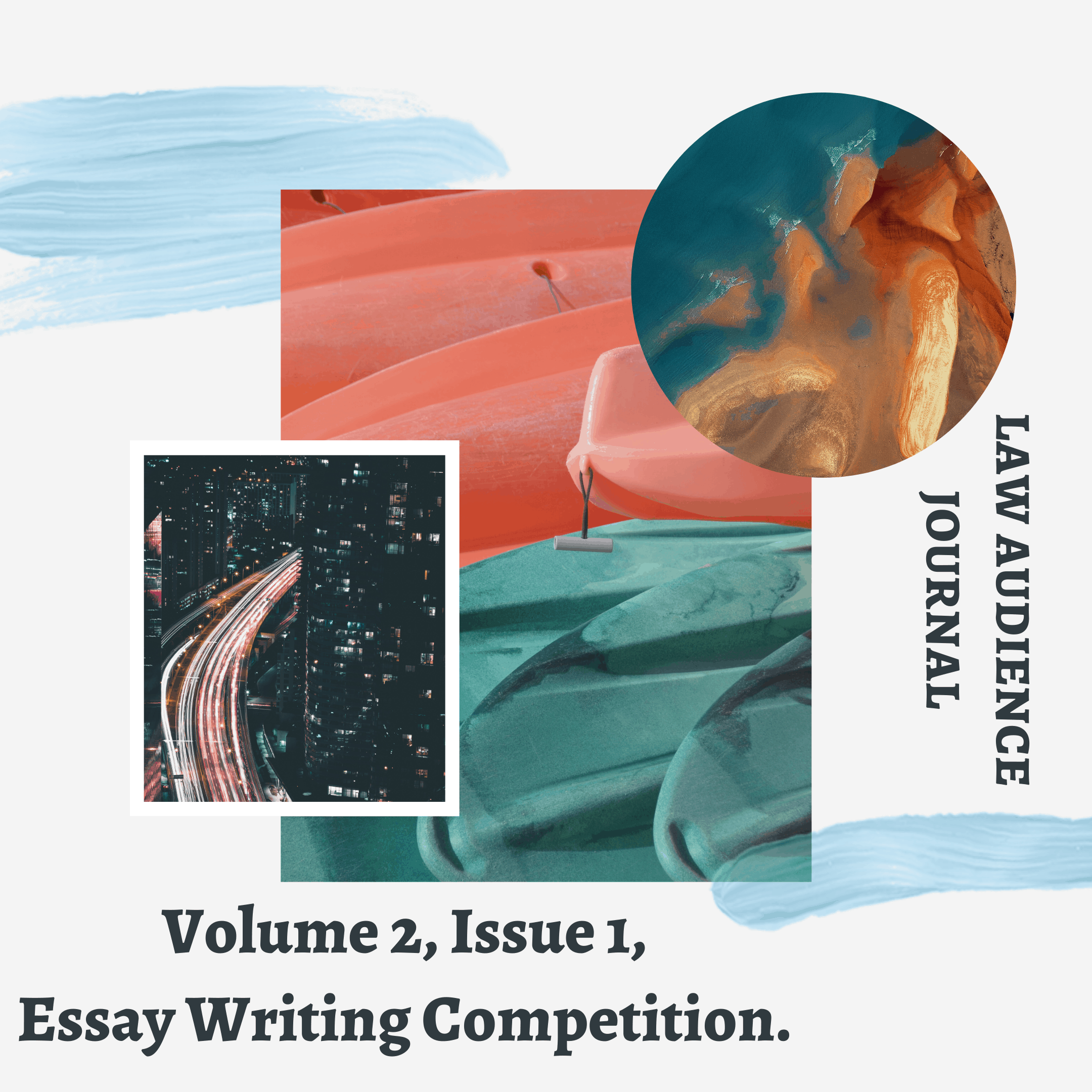AUTHORED BY: MR. CHIRAG LALITKUMAR DAVE (LL.M), DES'S SHRI. NAVALMAL FIRODIA LAW COLLEGE, PUNE (AFFILIATED TO SAVITRIBAI PHULE PUNE UNIVERSITY).
I. INTRODUCTION:
Secularism is considered as the basic structure of our Constitution. In India, there is no State preferred religion and all the religions are guaranteed equal Constitutional protection. However, the rights provided by the Constitution are not absolute and they are subject to reasonable restrictions which can be imposed by the State. All the religious practices should be followed in such a manner that these practices do not violate the rights guaranteed under Part III of the Constitution and rights of any other religion. All the persons have the right to profess one’s beliefs and doctrines pertaining to matters which contribute to his spiritual well-being. Hence, a person has the freedom to mould his relations with God in whatever manner he likes.
This does not mean that people can act in any manner or follow unessential practices as per their whims and fancies. They cannot practice and propagate their religion by violating other people’s rights. The freedom guaranteed by Article 25 is the right of the individual to practice and propagate not only matters of faith and beliefs but also those rituals and observances which are regarded as an integral part of religion by the followers of its doctrines.[1] But, this freedom is not absolute. The rights provided under Article 25 of the Constitution are subject to public order, morality, health, other provisions of Part III of the India Constitution and other laws regulating or restricting economic, financial, political or other secular activity or social welfare and reforms and laws providing for throwing open of Hindu religious institutions of a public character to all classes and section of Hindus.[2]
II. COURTS’ POINT OF VIEW:
While interpreting Article 25 of the Indian Constitution, the courts have always considered the facts and circumstances of the case and evolved the doctrine of “essentiality”. The Courts have tested whether the religious practice followed by subjects is an integral and essential part for practicing the said religion. The use of loudspeaker for calling the Azan[3], the sacrifice of a cow on Bakri-Id[4], and Jain practice of santhara- a ritual of “voluntary and systematic fasting to death”[5] are not considered as essential religious practices by the Court and they have banned such practices which do not have conformity with the religion. Hence, on a number of occasions, the courts have declared the religious practices as unconstitutional as these practices were not the integral and essential part of the religions.
There are many such non- essential practices which have been banned by the Supreme Court of India. But there still remains the question of the sacrifice of animals in temples. Today animal sacrifice in India is still practiced as an age-old and traditional norm in many regions. There are a few High Courts which have banned such practices in their respective state by declaring that these practices have no place in the modern era of scientific reasoning. It is also stated that such practices which are based on superstition cannot be given a placed in the contemporary era.
The High Court of Tripura in September 2019 declared that the practice of offering the sacrifice of an animal in temples of the State to be unconstitutional. The decision was given in a PIL filed against the practice which involves serving of animal heads by sharp cutting swords among the loud noise of drums and chants of the devotees. It is regarded that the served heads are then handed over to priests for chanting mantras, while the blood of the animals flows within the precincts of the temple and the drain. The followers of this practice claim that this practice is a traditional norm of their community and they are following such practice since ages. The State government in their defense contended that such practices are an integral part of worship in the Hindu Religion. Further to support their arguments, the State government also took the support of several documents and traditional written material to prove that the practice of sacrifice has existed in the temple for a long time.
The Court tested the contentions on the touchstone of Article 25 of the Constitution where it considered whether such practices can be called as Essential Religious Practice and whether such practices are violative on grounds of public order, morality health or other rights guaranteed under Part III of the Constitution. In its opinion, the Court held that only the practices which are an “essential and integral part of religion” can be protected by Art 25(1) of the Constitution of India.
Further, the Court clarified that the practice of animal sacrifice which is carried within the temple cannot be said to be the core and essential as well as the integral part of religion. The Court also said that in the instant case, the sacrifice of an animal in temples is not carried out as a necessary element of the religion, but this is practiced with blind faith and acceptance that such traditional norm would help to please the divine god who would bless them with boon and contentment. Finally, the Court declared the practice as unconstitutional and reiterated the practice is not an integral part of Article 25.
In India, the practice of animal sacrifice is believed to be practiced due to the age-old traditional norms and it is followed as the ancestors of a particular community used to follow. Animal Sacrifice is usually practiced under the garb of religious norms to appease deities and Gods. However, it is important to consider that no religion in the world is the preacher of violence or requires its followers to kill animals. All the devtas and deities are kind-hearted and bless humanity to prosper and live in harmony with each other.[6] The Sacrifice of an animal in a temple is also regarded as a brutal practice as it is against the right of an animal as recognized under article 21 of the Indian Constitution. Animals have rights to live in a free environment. In a catena of cases, Indian Judiciary has played a role in protecting the rights of animals and maintaining a safe environment. The Court has tried to maintain a balance and harmony between the protection of animals and religious practices. The Apex Court in the landmark Jallikattu Case recognized the dignity and honour of animals under Article 21 of the Constitution.[7] Further, it is important to understand that certain practices even though regarded as religious, they have sprung from merely superstitious beliefs and should be sensed as only extraneous and unessential accretion to religion itself.[8]
Such practices should be completely abrogated and not to be protected under Article 25 of the Constitution. It is pertinent to note that the core of religion is based upon spiritual values, which the Vedas, Upanishads and Puranas were said to reveal to mankind seem to be – “Love others, serve others, help ever, hurt never” and “Sarvae Jana Sukhino Bhavantoo”.[9] No religion will preach to harm the living being including insects and animals.
Hence, it is important to note that there is a vast difference between the true religious practices and carrying out such practices which are merely followed without any conformity. From the legal eyes, such practices are subject to public order, health, morality, and other provisions relating to Fundamental Rights as well as the duties provided in the Indian Constitution. The practice of sacrificing animal are generally found on the assumptions of incorrect interpretation of religious teachings and superstitious beliefs which are firmly rooted in the minds of the blind propagators of religion and such practices are still followed only because the ancestors were following and the members of such religions feel that it is their fundamental duty to follow the religious practices of their ancestors. The Supreme Court in many cases has observed that “no usage which is found to be pernicious and considered to be in derogation of the law of the land or opposed to public policy or social decency can be accepted or upheld by Courts in the country.”[10] Hence, such practices cannot be allowed to remain in our society.
III. LAWS TO PROTECT ANIMALS:
In India, there are many laws which provide for the protection of animals and the ecosystems. To promote animal welfare and ensure animal safety, India enacted the Prevention of Cruelty to Animals Act in 1960. Since the enactment of the legislature, there has been a prolong movement towards the protection of animals and concerns towards their welfare. The Constitution of India also provides for protecting animals and wildlife. Through the provisions of fundamental duties, the Constitution casts the duty to protect and improve the natural environment including forests, lakes, rivers and wildlife and to have compassion for living creatures.[11] The Judiciary has also on a number of occasions attempted to protect the animals by banning activities which are brutal and which harms the dignity of animals. Even though the law provides protections to animals, the issue of the sacrifice of animals in temples has still remained unresolved. Such practices are still followed in many rural and tribal parts of India. The Supreme Court on many occasions has refused to entertain in matters involving the sacrifice of animals by stating that the Judiciary cannot stop centuries-old traditions of sacrificing animals by different communities.
IV. CONCLUSION:
The Apex Court on many occasions has rejected to interfere into such matters where age-old and traditional religious practices are involved. On the other hand, recently, the Supreme Court has admitted the petition which is filed against the decision given by the Tripura High Court in September 2019 pertaining to ban on Animal Sacrifice in Temples. Now it is the Supreme Court which will decide upon the issue regarding animal sacrifices in temples. It is sure that the guardian of the Constitution will protect the rights of the people and will adhere to the principles of our Constitution.
[1] Commissioner Hindu Religious Endowment v. Sri. Lakshmindra Thirtha Swamiar, A.I.R 1954 S.C 282 (India).
[2] INDIA CONST. art 25.
[3] Masood Alam v. Commissioner of Police A.I.R 1956 Cal. 9 (India).
[4] Mohd. Hanif Quareshi v. State of Bihar A.I.R 1958 731 (India).
[5] Nikhil Soni v. Union of India, CriLJ 2015 Raj. H.C. 4951.
[6] Ramesh Sharma v. State of Himachal Pradesh & ors. , CWP No.9257 of 2011.
[7] Animal Welfare Board of India vs. A. Nagaraja and other. (2014) 7 SCC 547.
[8] Gilles Tarabout Ruling on Rituals: Courts of Law and Religious Practices in Contemporary Hinduism, 17 SAMAJ 2018.
[9] State of Karnataka and anr. v. Dr. Praveen Bhai Thogadia, (2004) 4 SCC 684.
[10] N. Adithayan v. Tranvancore Devaswom Board and Ors. (2002) 8 SCC 106.
[11] INDIA CONST. art 51-A (g).


